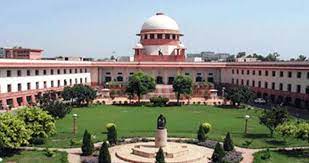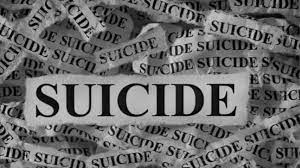‘Is it right for children of IAS, IPS officers to get reservation?’, Dalit judge asked in the Supreme Court

The Supreme Court said on Tuesday (February 6, 2024) that it will again review its 2004 decision regarding SC-ST reservation. In this decision it was said that the states do not have the right to create sub-categories for Scheduled Castes (SC) and Scheduled Tribes (ST) to provide reservation. A seven-judge Constitution bench led by Chief Justice DY Chandrachud made it clear that it would not go into the arguments related to figures due to which the Punjab government had provided 50 per cent quota within the reservation. During the hearing of this case, Justice BR Gavai raised questions about reservation for children of bureaucrats.
By Ananya Dewan
In 2006, the Congress government of Punjab had given Mahadalit status to Valmiki and the religious (Sikh) community. Under this, it was decided to reserve half of the 15 percent reservation for the Scheduled Tribes. In this way, two communities in Punjab got priority among the Scheduled Castes, but in the year 2010, the Punjab High Court rejected it. In 2011, the Punjab government challenged the High Court’s decision in the Supreme Court. The state government has argued that the most backward among the backward classes should be identified and they should be provided the means to avail employment opportunities. Hearing is going on on 23 petitions filed against the decision of the Supreme Court, which also includes the petition of Punjab Government. Hearing on these petitions started on 6 February.
The bench of Chief Justice of India DY Chandrachud, Justice BR Gavai, Justice Vikram Nath, Justice Bela M Trivedi, Justice Pankaj Mithal, Justice Manoj Mishra and Justice Satish Chandra Mishra held the hearing on Tuesday (February 6, 2024). During this, Justice Gavai asked, ‘If a person from the Scheduled Caste/Scheduled Tribe community joins central services like IAS, IPS, he gets the benefit of the best facilities. Yet his children and their children continue to get reservation. Should this continue?’ Justice BR Gavai is also a Dalit and is going to become the Chief Justice in May next year. The Punjab government said that the 2004 decision of the Supreme Court does not apply to it.
What did Punjab High Court say in its 2010 decision?
The High Court had struck down Section 4(5) of the Punjab Act as unconstitutional, which gave 50 per cent of the 15 per cent reservation to the Scheduled Castes to Valmikis and religious Sikhs. The court had said that this provision violates the 2004 decision of a five-member Constitution bench of the Supreme Court in the case of EV Chinnaiah vs. State of Andhra Pradesh. In the Chinnaiah decision, it was said that sub-categorization of Scheduled Castes would violate Article 14 (right to equality) of the Constitution.
What did the Punjab government say in the petition
The Punjab government had approached the Supreme Court in 2011 challenging the High Court’s decision, saying that the 2004 decision of the apex court did not apply to it. Hearing the Punjab government’s petition, a five-member bench led by Justice (now retired) Arun Mishra had on August 27, 2020 expressed disagreement with the Chinnaiya decision and referred the matter to a seven-member larger bench. In higher educational institutions funded by the central government, 22.5 percent of the available seats are reserved for Scheduled Caste and 7.5 percent seats for Scheduled Tribe (ST) students. The same criteria applies in the case of government jobs also. There is no Scheduled Tribe population in states like Punjab and Haryana.
Courtesy : Connexionblog
Note: This news piece was originally published in connexionblog.com and used purely for non-profit/non-commercial purposes exclusively for Human Right







